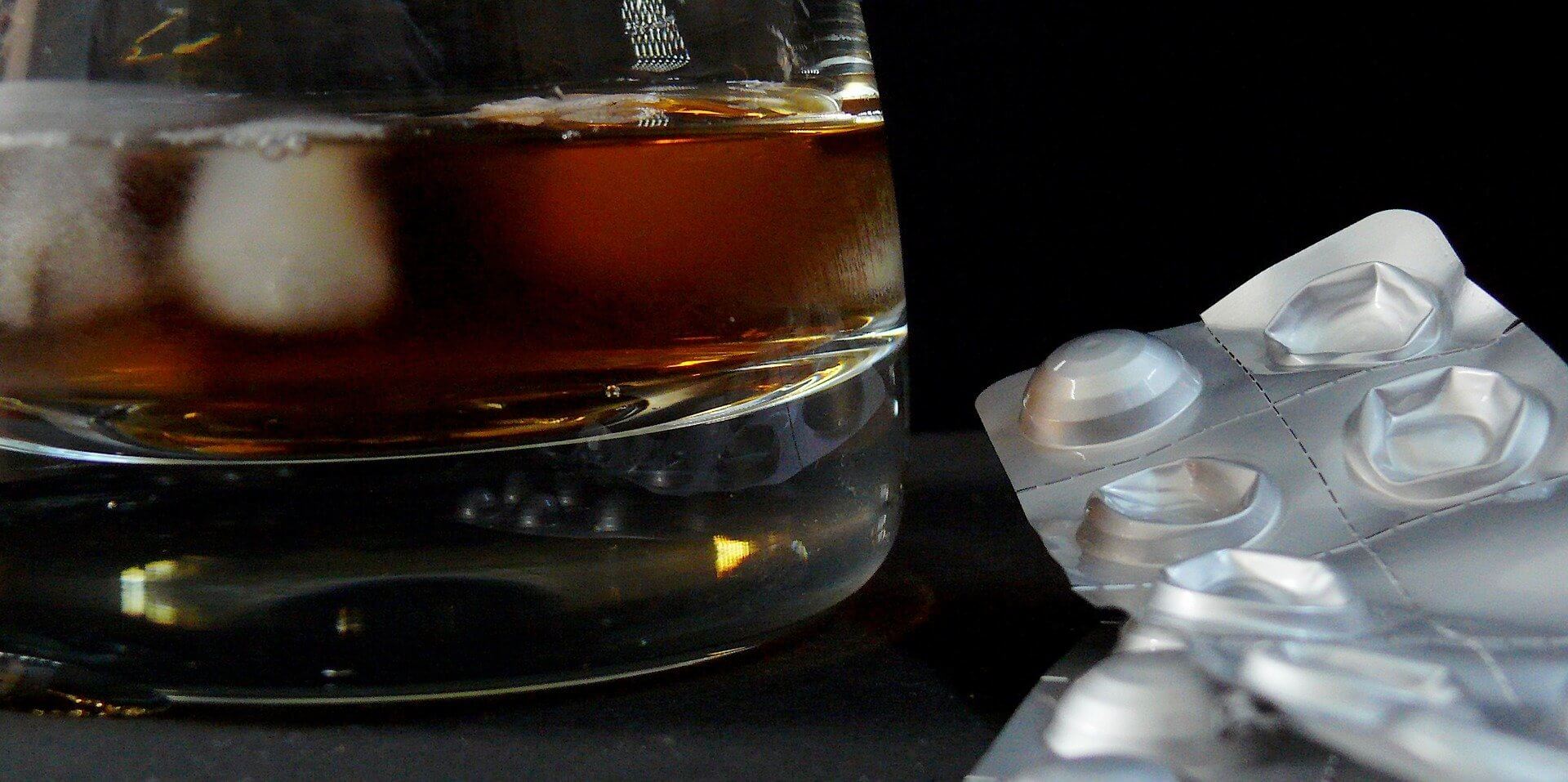Before You Take That Next Drink, Read This
You’ve heard the warnings: “Don’t mix prescription drugs with alcohol.” Or at least check with your doctor first. Maybe you’re one of those who listen. But if you’re not, you should know the danger is real. A glass of wine, a beer, or a shot of hard liquor is rapidly absorbed into the bloodstream. Alcohol metabolizes within our bodies just like any other medication does. It’s critical to realize that alcohol can interact with other drugs we may be taking and potentially cause harmful side effects.
Healthcare providers, including doctors and pharmacists, are tasked with identifying potential drug interactions. We, as patients, need to be equally vigilant. Prescription medications often carry multiple warnings, and the importance of these warnings can differ from person to person. In some cases, doctors may prescribe medications with known risks, determining that the benefits outweigh the potential harm. Ultimately, the prescribing physician has the most comprehensive understanding of a patient’s medical condition.
Bottom line: we need to use extreme caution when combining alcohol with medication, as the potential consequences can be serious.
Getting to the Basics of Medication/Alcohol Mixing
Alcohol is a substance that can impact essentially every part of the body, most significantly the brain, liver, and kidneys. When mixed with medications, alcohol can heighten side effects or introduce new and unwanted effects. It can reduce the effectiveness of the prescribed medication. In some situations, these alcohol/drug interactions can result in life-threatening scenarios.
While not all medications react with alcohol, for those that do, the outcomes can be dangerous. Even combining small amounts of alcohol with over-the-counter meds and herbal remedies can be harmful. If you ever have doubts or questions, always check with a healthcare provider or a local pharmacist, or chat with our online support team to help you determine when your medications should be kept apart from alcohol. But when the advice is not to mix drinking with drugs, what does that mean?
How much alcohol is too much?
There are a few medications for which “definitely no alcohol” should be the rule. Some examples of these are:
- Antibiotics, such as Flagyl (metronidazole). Metronidazole is a widely used antibiotic for treating bacterial infections, and it’s one of those medications that should never be combined with alcohol. Mixing the two can lead to strong reactions such as intense nausea, vomiting, headaches, and flushing.
- Antidepressants such as Prozac (fluoxetine) fall under the category of medications known as selective serotonin reuptake inhibitors (SSRIs). Others, like Wellbutrin (bupropion), are classified as atypical antidepressants. Mixing these with alcohol can actually be dangerous because, in larger volumes (more than two glasses of wine or beer or two shots of hard liquor), alcohol acts to increase the level of depression, which can counteract the intended remedial effects of these medications, reducing their effectiveness. Furthermore, the combination of alcohol and antidepressants can heighten the risk of side effects like dizziness, drowsiness, and difficulty focusing. The worst-case scenario is that people may even experience a worsening of their usual levels of depression or anxiety, which are the very symptoms these medications aim to alleviate.
- Benzodiazepines like diazepam or lorazepam are commonly prescribed for conditions such as anxiety and insomnia. These medications function by slowing down brain activity. When alcohol is added to the mix, it intensifies this effect significantly. This can result in drowsiness, dizziness, breathing difficulties, and, in severe cases, an overdose. Combining benzodiazepines with alcohol is not simply ill-advised. It can also be extremely hazardous.
- Strong pain relievers (opioids) like Tramadol are often prescribed as analgesics for the treatment of mild to severe pain in conditions like rheumatoid arthritis and osteoarthritis. Mixing alcohol with painkillers is a dangerous combination that should be avoided at all costs. Both substances depress the nervous system independently. However, when taken together, they can significantly slow down pulse and breathing rates to levels that could potentially lead to a fatal outcome. Even combining alcohol with milder OTC pain medications such as Tylenol (acetaminophen) can lead to serious liver issues.
- The effectiveness of blood thinners like Warfarin (coumadin) may be affected by alcohol consumption. Combining alcohol with blood thinners can heighten the risk of bleeding in the stomach and intestines. Even a tiny amount of alcohol could result in extensive bruising or prolonged bleeding following an injury.
What Medications Can Tolerate Moderate Alcohol Consumption
Some common medicines may not have severe interactions if alcohol is consumed in moderation. This doesn’t imply they are entirely risk-free. However, with good judgment, it may be possible to maintain a relatively good level of health while still enjoying an occasional glass of your favorite drink.
Some antibiotics like Augmentin (amoxicillin) do not typically cause adverse reactions when taken alongside alcohol. Still, many healthcare professionals advise that it’s better to avoid alcohol while any infection is running through your body since it can weaken your system and slow down the recovery process. If you do feel a particular need to have a drink, then most doctors say you should keep it in moderation, like a single glass of wine or a beer.
Statins such as Lipitor (atorvastatin) are another example where it’s considered to be safe to consume alcohol in moderation. In general, statins are prescribed to control cholesterol levels in the blood, and they do this by directly affecting the levels of liver functions. Alcohol also has a direct impact on the liver, but in this case, it can be a negative effect. Too much alcohol is well known as being one of the most common causes of liver failure, and even moderate drinking, if it becomes habitual, can lead, in the end, to damage to the liver. In such cases, drugs like Lipitor lose their effectiveness, and the body’s ability to combat the adverse effects of cholesterol buildup becomes compromised.
Antihistamines are often easy-to-buy OTC medications that many people would not think of as potentially dangerous, but some, such as Benadryl and Zyrtec, already cause drowsiness, which can be amplified when combined with even moderate levels of alcohol, leading to extreme levels of sleepiness and impaired motor controls,
Conclusion
Always consider that even if the specific medication you’re taking isn’t mentioned above, it is essential to recognize that each individual’s reaction to alcohol can vary greatly. What may be safe for one person might not be safe for another due to factors such as age, weight, liver function, and overall health status, which can influence how the body processes both medications and alcohol.
When in doubt about mixing alcohol with medication, it’s best to seek guidance from your pharmacist or doctor for advice tailored to your circumstances.
Is Any Population Group More at Risk?
The Elderly
Older individuals face a heightened risk of experiencing harmful interactions between alcohol and medications due to several factors. Typically, the elderly take more medications compared to younger individuals, increasing the likelihood of being on multiple medications that can interact negatively with alcohol.
Consequently, 80% of individuals aged 65 and above who consume alcohol do so while also taking prescription drugs. The adverse outcomes arise because aging slows down the body’s ability to metabolize alcohol, leading to a prolonged presence of alcohol in the system.
Women
The effects of alcohol are known to vary for women. Generally speaking, women are more susceptible to issues related to alcohol consumption compared to men. In almost every study, it’s been found that when a woman drinks alcohol, the concentration of alcohol in her bloodstream tends to reach higher levels than that in a man’s bloodstream, even if they both consume the same volume. This is because women generally have a lower body water content than men. Since alcohol is diluted by water, any amount consumed would be more concentrated in a woman’s body than in a man’s. This means that women are at a greater risk of organ damage due to alcohol consumption.
Recently, the CDC recommended that women of reproductive age should avoid alcohol entirely during pregnancy, when trying to become pregnant, or if sexually active with a male partner and not using birth control. One exception is birth control pills. There is no reason for women on contraceptives (or other forms of hormonal birth control) to refrain from occasional drinking as it does not impact the effectiveness of these contraceptives.

















